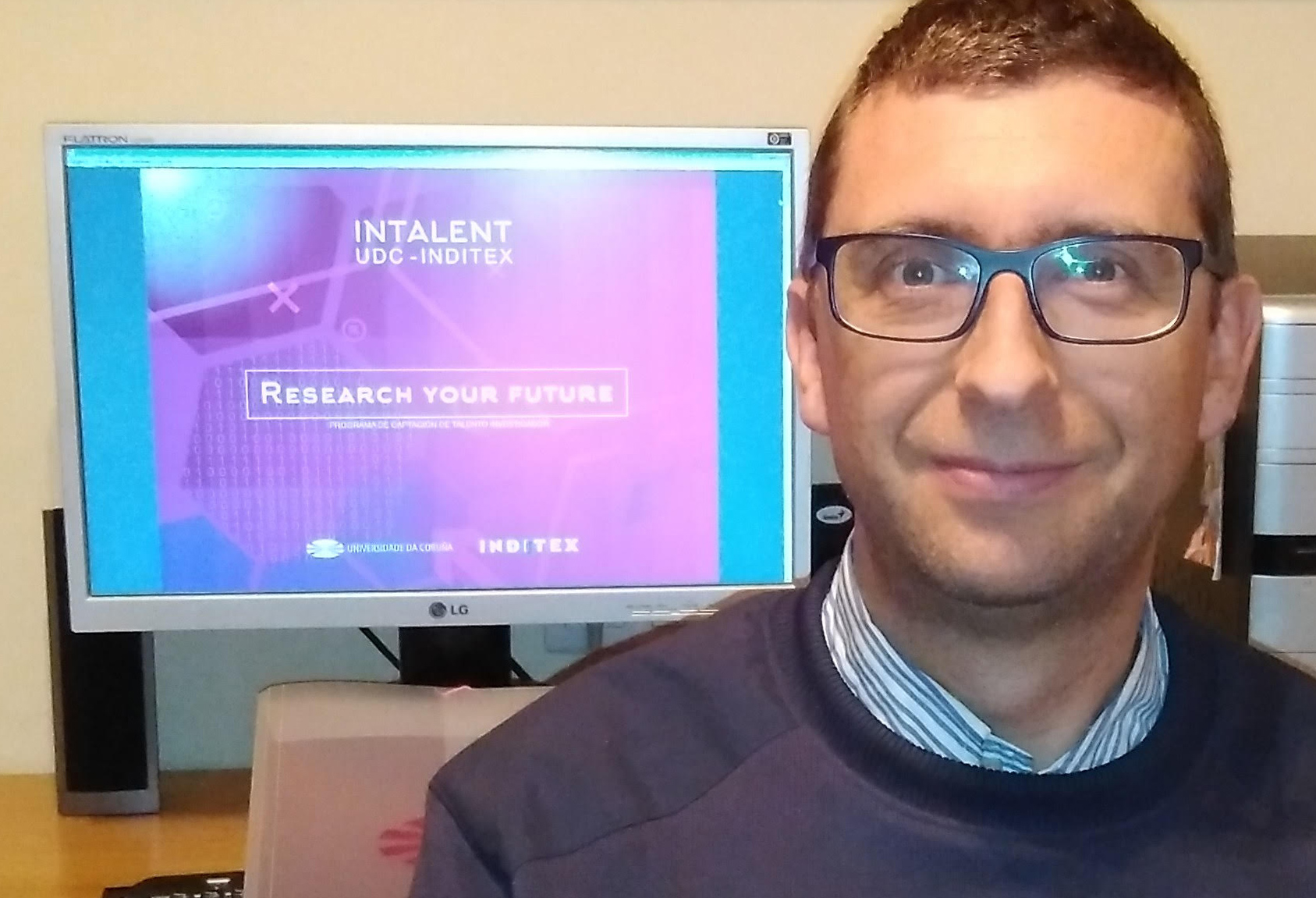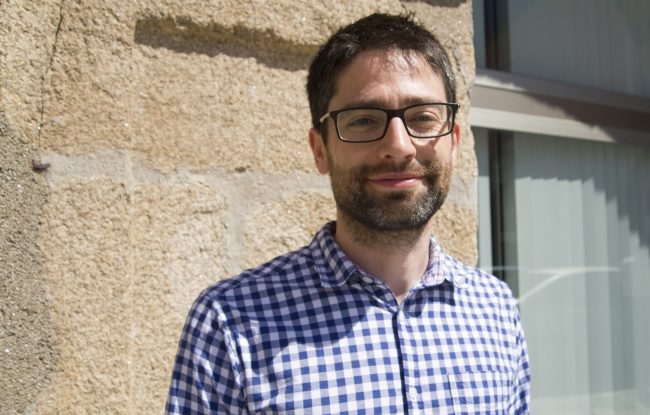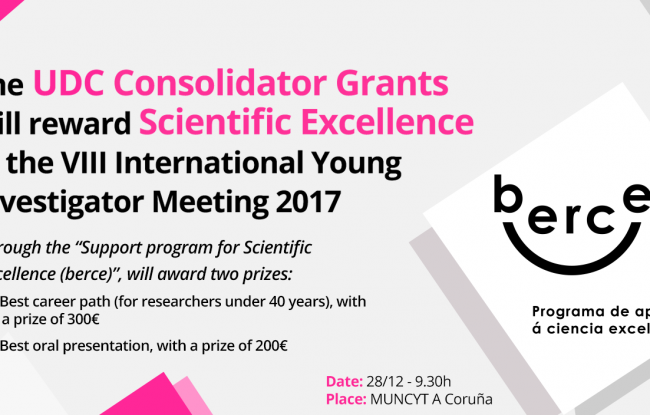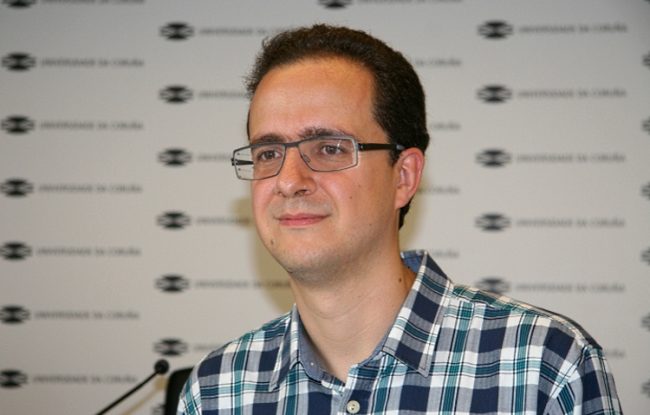The InTalent programme is now up and running, and it has been a great success thus far. Many researchers have applied to the programme’s first call which is being driven by the University of A Coruña and Inditex.
Today we speak to José Mahía, member of the Research Results Transfer Office (OTRI) at the UDC and scientific coordinator of the InTalent programme. The InTalent programme is part of the UDC’s Support Programme for Excellent Science (berce) and is supervised by the Vice-chancellor for Scientific, Research and Transfer Policy.
José Mahía along with Javier Garrido, InTalent’s technical coordinator, carry out various functions in the management of the programme “from defining the call and evaluation criteria to the reception, accompaniment and follow-up of research activity results, also providing support and assessment to applicants and assistance to the evaluation commitee.”
1. You have just closed the first call (2016) of the InTalent programme. What assessment would you make of the programme thus far? Can you tell us when the next call will open?
To tell the truth we are all very happy with how things are working out. InTalent is a pioneering talent recruitment programme in Galicia and we have had to set it up from nothing, which has been a challenge and quite a lot of work, but it has also allowed us to create the programme we wanted and one in which we fully believe. And the response from researchers has been absolutely fantastic.
We have received more than one hundred applications in the first call, which we consider a great success, although at the same time we have been unable to fulfill the aspirations of many great researchers who have shown their interest and inevitably will be left out of this first call. For that reason, we want to get the second call up and running as soon as possible. By our estimations it should appear around the middle of 2017.
2. The InTalent is one of the talent retention and recruitment initiatives run by the UDC. Are there others?
The UDC is without doubt fully committed to retaining, recovering and recruiting excellent research talent. Around two years ago the berce programme was set up with these aims, offering a series of specific measures like technical support for submitting applications for excellent science programmes both nationally and internationally, especially for ERC. Berce is more alive than ever, and InTalent is another step forward in the same direction, creating our own excellent science programme.
3. At the moment the call for ERC Consolidator Grants is open. What do you offer to researchers who make their proposal through the UDC?
To all those researchers who are interested in making their ERC Consolidator Grant del ERC application through the UDC we offer technical support in drawing up their proposal, but above all what I would highlight is the job stability we offer, as all researchers who obtain ERC funding (of whatever type) and carry out their project at the UDC will have a permanent post as a “distinguished researcher”, thanks to an agreement with the regional government (Xunta de Galicia). This opportunity is independent of the InTalent programme and is a very interesting way of recovering and recruiting excellent researchers.

4. So… What does a researcher who wants to apply through the UDC have to do?
All researchers who want to apply for an ERC through the UDC should contact us by email (intalent@udc.es) and arrange a meeting in person or by skype to study the best options for each researchers in terms of their personal circumstances.
5. Are there more opportunities for job stability in the UDC?
Yes, there are. In fact, the Ministry of Economy, Industry and Competitiveness has just published the 2016 call for the Ramón y Cajal programme. The aim of this call is to promote the incorporation of national and international researchers with outstanding records into R&D centres for a period of 5 years. Although they are not guaranteed to be kept on at the end of this period, the law states that at least 15 per cent of posts in every university must go to research staff who have completed the Ramón y Cajal programme. At the moment the UDC has a number of vacancies for the beneficiaries of this programme which means there is a high probability of being kept on for those Ramón y Cajal researchers who decide to carry out their research at the UDC.
6. What other possibilities of excellent science funding would you highlight?
There is a lot on offer, although each call is incredibly competitive. On a national level I would highlight the “Juan de la Cierva”, both the training type and incorporation, and the call for this programme has already been published with the application process about to open. They are aimed at those researchers in the first stages after their doctorate.
On a European level, besides all types of ERC Grants (Starting, Consolidator and Advanced), I would point out the Marie Skłodowska-Curie Actions which are very well endowed economically speaking and mean mobility for the researcher with regard to his or her country of residence in recent years.
The UDC would be an ideal destination for those Galician and Spanish researchers who have spent a postdoctoral period abroad and want to continue their research career in Spain.
Regardless, I would like to stress the openness of our university towards receiving excellent researchers through any of these national and international programmes, and so I would encourage all interested researchers to get in contact with us to find out the possibilities we can offer them.






